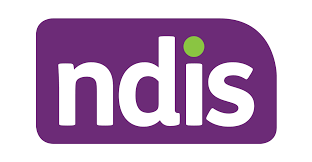How Much Does It Cost To Become an NDIS Provider?
Are you considering offering solutions that are available to NDIS participants? That's great! Being able to help people with disabilities to reach their goals is extremely rewarding.
If yes, you could be thinking, 'how much will it cost to be an NDIS provider? What is the cost?
In this article, we will look at the cost of creating yourself as an NDIS service provider, which includes direct expenses if you decide to become an NDIS-registered provider and other expenses associated with creating your NDIS-registered business.
How much will it cost to be NDIS registered?
It's completely free. It's free to sign up with the NDIS. There are, however, costs related to auditing your company that NDIS Practice Standards mandate. These costs can vary based on the scale of your company and the type of service you are planning to offer.
There are two kinds of NDIS audits:
1. Verification audit
This audit is designed for NDIS firms that provide low-risk, simpler services and assistance. It involves a computer examination of your documents submitted as proof of your skills by an accredited auditor, costing about $900 to $1,500.
Supports with low risk include:
- Products for personal care and security
- Personal mobility equipment
- Assistance with transportation arrangements
- Modifications to vehicles
- Equipment for assistive recreation
- Vision equipment
- Community Nursing Care for the community
- Tasks for the household (such as gardening and cleaning)
- Equipment and services for hearing
- Assistive technology to assist with household chores
- Control of support funding
- Support for personal wellness and therapeutic activities.
2. Certification audit
If you offer services or support that are more complicated or are deemed riskier, you may require an audit for certification. This thorough audit involves assessing your business in relation to NDIS Practice Standards. Practices of the NDIS Standards. This could include visits to your premises and interviews with participants of the NDIS, costing up to $3000.
Administration and ongoing expenses
Alongside the direct expenses associated with one's NDIS audit, you need to consider the expense of the time it'll require you to create and present all the necessary documents.
It is also necessary to complete another self-assessment and an external audit every three-year registration cycle.
What is the cost of establishing an NDIS company?
If you're planning to provide NDIS support and services, it is also important to consider the expenses associated with starting your own business. The cost of these services will vary dependent on the size and the scope of the business you wish to create. Consider a few expenses for becoming an NDIS provider.
Training and recruitment of staff
If you're planning to do it with others, You'll have to consider the costs of recruiting and training employees. For instance, do you promote screening, interview new hires, and onboard them yourself? In this scenario, you'll have to pay for the time, effort and energy costs. Or, you can contract this work out to a company that recruits, costing you thousands of dollars for each hire.
You may also have to consider the cost of training based on the skills that your employees offer. For example, the cost of any professional development you select to provide and whether you'll pay for the time employees take to take classes.
Insurances
Any business has a certain amount of risk you can mitigate by obtaining appropriate insurance. Based on the nature of your business and the services you offer, you may have to purchase insurance to protect:
- Public liability
- Professional indemnity
- Product Haftung
- Property
- Commercial vehicle
- Third-party obligation
- Cybercrime.
Premises
If you aren't planning to work at home, you'll have to pay for purchasing or leasing a facility to run an NDIS business. These can also vary considerably based on your company's size, but they could be as low as $150 per week for the office space in a co-working space to thousands of dollars for larger commercial spaces.
Consumables and equipment
Establishing an NDIS company typically involves the expense of purchasing or leasing equipment and consumables required to run it. Some examples include:
- Office fit-outs, like chairs, desks and filing cabinets
- Printers and computers
- Name badges and uniforms
- Personal protective equipment
- Stationery.
Certain NDIS companies may also wish to keep the stocks you use for client visits or offer to clients, like assistive technology equipment and personal care products.




Comments
Post a Comment